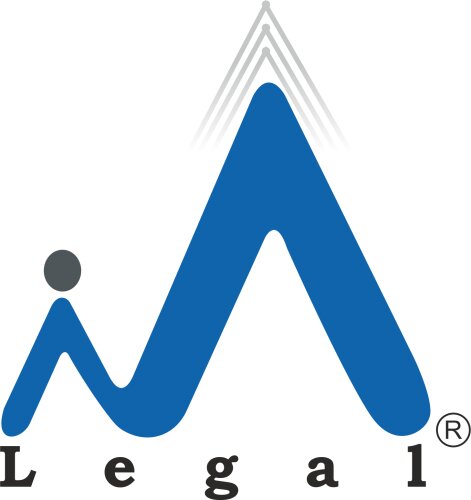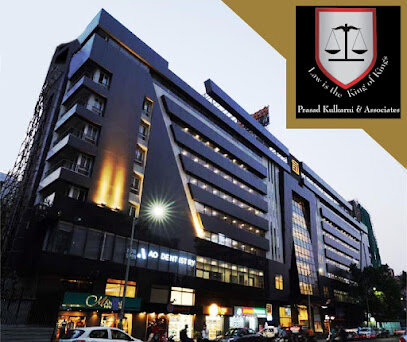Best Administrative Lawyers in Pune
Share your needs with us, get contacted by law firms.
Free. Takes 2 min.
List of the best lawyers in Pune, India
India Administrative Legal Articles
Browse our 1 legal article about Administrative in India written by expert lawyers.
- Waqf Judgment by the Supreme Court of India: Explained in Simple Words
- On 15 September 2025, the Supreme Court of India delivered an important ruling on the Waqf (Amendment) Act, 2025. This law introduced major changes to how Waqf properties (religious endowments made by Muslims for charity or religious purposes) are governed in India.Several petitions had been filed in the Court, challenging... Read more →
About Administrative Law in Pune, India
Administrative law in Pune, India, encompasses the legal principles governing the administration and regulation of government agencies (both central and state). The practices relate to the decision-making processes of administrative units of government, including the enforcement and judicial review of these decisions. Pune, being a significant urban center in Maharashtra, hosts various administrative bodies whose interactions with citizens often require legal navigation.
Why You May Need a Lawyer
There are numerous circumstances under which an individual or business might require the services of an administrative law attorney in Pune:
- Challenging or appealing decisions made by municipal or state agencies.
- Resolving disputes related to land use, zoning, and planning permissions granted by governmental bodies.
- Dealing with licenses and permits required for various commercial activities.
- Navigating employment decisions or disputes involving public sector employees.
- Handling issues related to public utility services managed by governmental agencies.
- Addressing grievances regarding social welfare benefits or other government-administered programs.
- Facilitating interactions and compliance with regulatory bodies overseeing specific industries or activities.
Local Laws Overview
Pune follows the broader framework of administrative law as established by both state and central legislation, alongside any local ordinances. Some key aspects include:
- Municipal Corporation Acts: Local governance issues, including urban planning, sanitation, and public health, come under the Pune Municipal Corporation Act.
- Land Revenue Code: Governs land and property-related administrative functions, including land acquisition and revenue collection.
- Right to Information Act (RTI): Empowers citizens to request information from public authorities, promoting transparency and accountability.
- Regulatory Frameworks: Cover industry-specific regulations, including environmental clearances, industrial licensing, and regulatory compliance enforcement by bodies such as the Maharashtra Pollution Control Board (MPCB).
Frequently Asked Questions
What is administrative law?
Administrative law deals with the rules and regulations set by government agencies, the procedures these bodies must follow, and the legal principles governing their actions.
When should I consult an administrative lawyer?
You should consult an administrative lawyer when you need to challenge government decisions or need assistance negotiating the bureaucracy for licenses, permits or for regulatory compliance.
How do I file an RTI application in Pune?
You can file an RTI application by addressing it to the Public Information Officer (PIO) of the concerned government department, detailing the information you require.
What are the common issues dealt with under administrative law in Pune?
Common issues include disputes regarding land use, property tax, occupational licensing, compliance with local ordinances and obtaining municipal permissions.
Can administrative decisions be challenged in court?
Yes, administrative decisions can be challenged in courts through a process known as judicial review, where the court examines the lawfulness of a decision or action taken by a public body.
What is the role of ombudsmen in administrative law?
An ombudsman addresses complaints about administrative injustice or maladministration and can recommend corrective action.
How can I resolve a land-related administrative dispute?
Consulting with an administrative lawyer to navigate the resolution process, which may involve negotiation, mediation, or pursuing the matter in a court of law, can help resolve such disputes.
Are there alternatives to litigation in administrative disputes?
Yes, alternatives include mediation and arbitration, where an impartial third party helps in resolving disputes outside of the court system.
How can I find an experienced administrative lawyer in Pune?
You can find experienced lawyers by contacting local bar associations, seeking recommendations from peers, or researching online legal directories.
What should I bring to my initial consultation with an administrative lawyer?
Bring all relevant documentation, including any correspondence or notices from governmental bodies, permits, licenses, and any other documents pertinent to your case.
Additional Resources
Several resources can assist those seeking legal advice in administrative matters in Pune:
- National Consumer Disputes Redressal Commission (NCDRC): For addressing consumer grievances.
- State Information Commission: For matters related to the Right to Information Act.
- Maharashtra Pollution Control Board (MPCB): For regulations related to environmental issues.
- Pune Municipal Corporation (PMC): For local governance issues.
- Maharashtra State Legal Services Authority: Provides free legal aid to eligible individuals.
Next Steps
If you need legal assistance in administrative matters in Pune, consider the following steps:
- Identify the Issue: Clearly outline the administrative challenge or query you are facing.
- Gather Documentation: Collect all relevant documents, including communications with government agencies, permits, and licenses.
- Consult a Lawyer: Seek out an experienced administrative lawyer through local bar associations or online legal directories.
- Prepare Questions: List out any questions or concerns you have to discuss during your initial consultation.
- Evaluate Options: Discuss potential legal strategies, including negotiation, mediation, or litigation, with your lawyer.
- Take Action: Follow the legal advice provided to navigate your administrative issue effectively.
Remember, understanding your rights and duties under administrative law can significantly ease your interaction with government agencies and administrative bodies. Seeking timely legal advice ensures that your issues are addressed efficiently and lawfully.
Lawzana helps you find the best lawyers and law firms in Pune through a curated and pre-screened list of qualified legal professionals. Our platform offers rankings and detailed profiles of attorneys and law firms, allowing you to compare based on practice areas, including Administrative, experience, and client feedback.
Each profile includes a description of the firm's areas of practice, client reviews, team members and partners, year of establishment, spoken languages, office locations, contact information, social media presence, and any published articles or resources. Most firms on our platform speak English and are experienced in both local and international legal matters.
Get a quote from top-rated law firms in Pune, India — quickly, securely, and without unnecessary hassle.
Disclaimer:
The information provided on this page is for general informational purposes only and does not constitute legal advice. While we strive to ensure the accuracy and relevance of the content, legal information may change over time, and interpretations of the law can vary. You should always consult with a qualified legal professional for advice specific to your situation.
We disclaim all liability for actions taken or not taken based on the content of this page. If you believe any information is incorrect or outdated, please contact us, and we will review and update it where appropriate.














